#doctor zhivago (1965) dir. david lean
Explore tagged Tumblr posts
Text

isn't it just...
6 notes
·
View notes
Text


DOCTOR ZHIVAGO (1965) dir. David Lean
#doctor zhivago#david lean#julie christie#classicfilmedit#classicfilmblr#filmgifs#classicfilmsource#cinematv#cinemapix#dailyflicks#cinemaedit#fyeahmovies#movieedit#moviegifs#filmedit#mine
319 notes
·
View notes
Text




Julie Christie in Doctor Zhivago, 1965
dir. David Lean
129 notes
·
View notes
Text
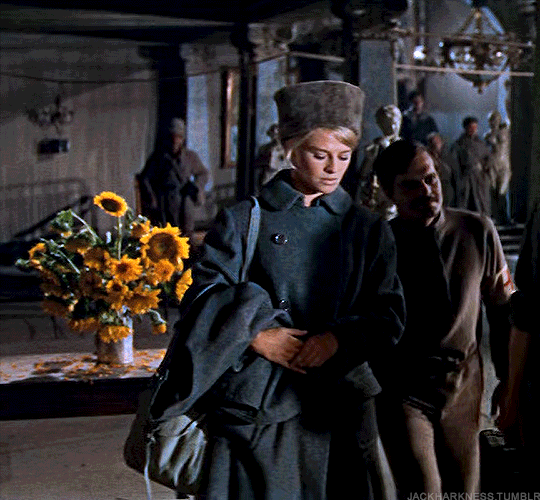
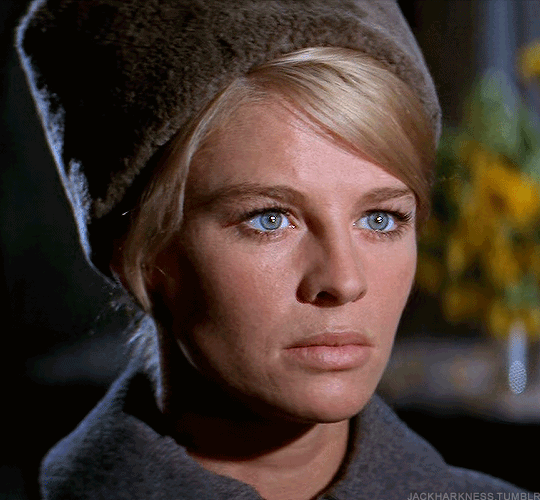
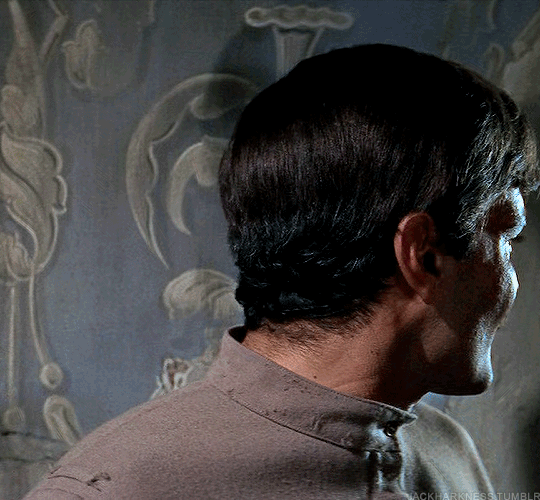
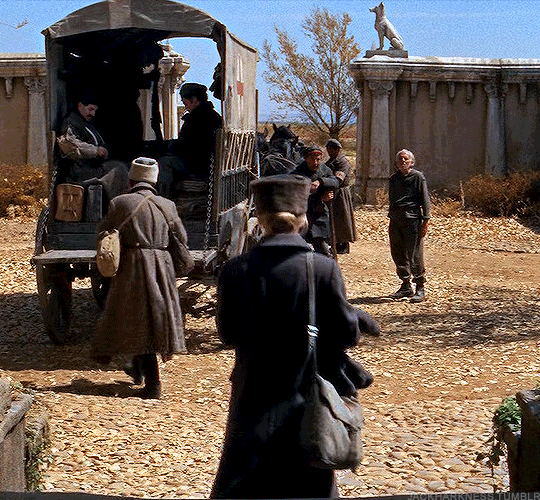
Goodbye, Zhivago.
DOCTOR ZHIVAGO (1965) dir. David Lean
#doctor zhivago#userrobin#userclayy#perioddramaedit#cinemaspast#classicfilmblr#filmtvcentral#filmedit#fyeahmovies#userfilm#cinematv#cinemapix#*#by red
201 notes
·
View notes
Text

Julie Christie
Doctor Zhivago (1965)
dir. David Lean
25 notes
·
View notes
Text
movies i think lucy enjoys. do i know why? no, but i do feel as if she likes them.
double indemnity (1944, dir. billy wilder)
in a lonely place (1950, dir. nicholas ray)
casablanca (1942, dir. michael curtiz)
doctor zhivago (1965, dir. david lean)
red desert (1964, dir. michelangelo antonioni)
8 notes
·
View notes
Text
Romance February: Omnibus

As I prepare for the future of this blog (and there is a future, if anybody's wondering), I find myself looking back at the good times, when I had the time to watch a movie a day and write a blog about it, which...yeah, wasn't even sustainable for me in 2021, so make of that what you will. ANYWAY, I decided that I would bring all of these posts together in an omnibus of sorts, so anybody that wanted to read these posts could find them all easily in one place. This, alongside other archives, are going to be pinned to the top of my page, and will serve as a long index of the films in the appropriate genres. The goal? To extend these archives as I go along, and have this running index for my blog. And again...there will be additions...
SO! With that, feel free to check out these films in the romance genre, which is somewhat...difficult to define, honestly. Romance overlaps with a bunch of other genres, so even films that put the love story at the center of the narrative have more to them by necessity. So, just figure these as films whose narrative is driven primarily by romantic tension and motivation. Any films you'd like to see in this list? Comment, reblog, message me, whatever! I'm always open to suggestions to add to my ever-building master list of romance films. And check out the other indices to come!

Dirty Dancing (1987; dir. Emile Ardolino) (Recap | Review) Pretty Woman (1990; dir. Garry Marshall) (Recap | Review) Sleepless in Seattle (1993; dir. Nora Ephron) (Recap | Review) You’ve Got Mail (1998; dir. Nora Ephron) (Part 1 | Part 2 | Review) The Notebook (2004; dir. Nick Cassavetes) (Part 1 | Part 2 | Review) Romeo + Juliet (1996; dir. Baz Luhrmann) (Recap | Review) Emma. (2020; dir. Autumn de Wilde) (Recap | Review) The English Patient (1996; dir. Anthony Minghella) (Part 1 | Part 2 | Review)
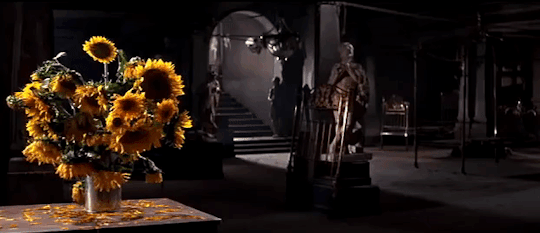
Doctor Zhivago (1965; dir. David Lean) (Part 1 | Part 2 | Part 3 | Review) In the Mood for Love (2000; dir. Wong Kar-wai) (Part 1 | Part 2 | Review) The Bridges of Madison County (1995; dir. Clint Eastwood) (Part 1 | Part 2) If Beale Street Could Talk (2018; dir. Barry Jenkins) (Part 1 | Part 2 | Review) Before Sunrise (1995; dir. Richard Linklater) (Part 1 | Part 2 | Review) Brokeback Mountain (2005; dir. Ang Lee) (Part 1 | Part 2 | Review) Call Me By Your Name (2017; dir. Luca Guadagnino) (Part 1 | Part 2 | Review) Carol (2015; dir. Todd Haynes) (Part 1 | Part 2 | Review) Desert Hearts (1985; dir. Donna Dietch) (Part 1 | Part 2 | Review) The Danish Girl (2015; dir. Tom Hooper) (Part 1 | Part 2 | Review)
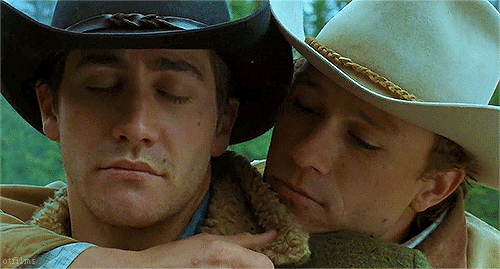
The Phantom of the Opera (2004; dir. Joel Schumacher) (Part 1 | Part 2 | Review) An Affair to Remember (1957; dir. Leo McCarey) (Part 1 | Part 2 | Review) The African Queen (1951; dir. John Huston) (Part 1 | Part 2 | Review) Pillow Talk (1959; dir. Michael Gordon) (Part 1 | Part 2 | Review) My Girl Friday (1940; dir. Howard Hawks) (Part 1 | Part 2 | Review) Annie Hall (1977; dir. Woody Allen) (Part 1 | Part 2 | Review)Amélie (2001; dir. Jean-Pierre Jeunet) (Part 1 | Part 2 | Review) Love Story (1970; dir. Arthur Hiller) (Part 1 | Part 2) Love, Actually (2003; dir. Richard Curtis) (Part 1 | Part 2) West Side Story (1961; dir. Robert Wise and Jerome Robbins) (Part 1 | Part 2)
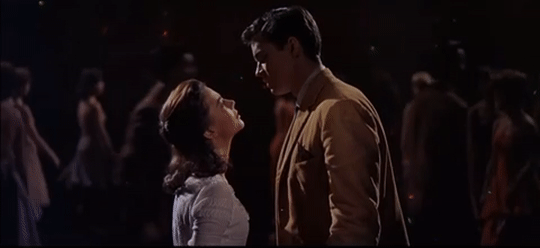
Omnibus: Film Reviews
#user365#365 days 365 movies#365 movie challenge#365 movies a year#365 movies 365 days#romance movies#historical romance#romance#romance genre#love story#romance films#romance february#movie recap#movie review#post archive#west side story#dirty dancing#brokeback mountain#lgbt films
5 notes
·
View notes
Photo

Doctor Zhivago (1965) dir. David Lean
7 notes
·
View notes
Photo
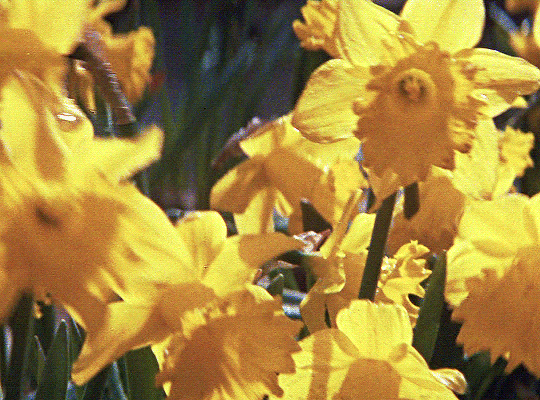
Doctor Zhivago (1965) | dir. David Lean
#doctor zhivago#filmedit#filmgifs#david lean#daffodils#daffodil#narcissus#flowers#flower gif#spring gif#*
1K notes
·
View notes
Photo








Geraldine Chaplin as Tonya Gromeko in Doctor Zhivago (1965) dir. David Lean
#doctor zhivago#geraldine chaplin#filmedit#film#moviegifs#60s#1960s#old hollywood#oldhollywoodedit#editsm#gifsm
64 notes
·
View notes
Photo



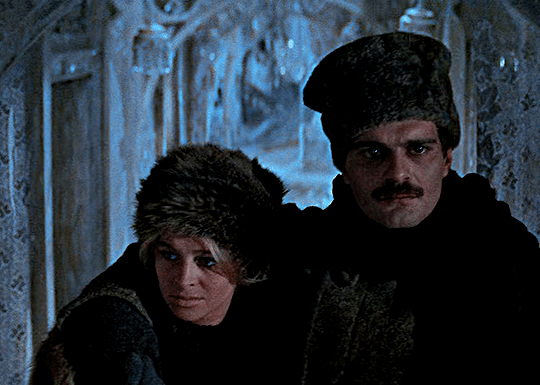
Doctor Zhivago dir. David Lean | 1965
#doctor zhivago#drzhivagoedit#omarsharifedit#usertelevision#userdeforest#userrobin#periodedits#perioddramasource#classicfilmblr#cinemaspast#dailyvintageblr#filmtv#filmedit#filmgifs#cinematv#moviegifs#moviehub#fyeahmovies#myedit
527 notes
·
View notes
Photo








DOCTOR ZHIVAGO (1965) dir. David Lean
#doctor zhivago#rod steiger#julie christie#omar sharif#geraldine chaplin#david lean#gif edit#movie edit#film edit#gifs by me
167 notes
·
View notes
Text

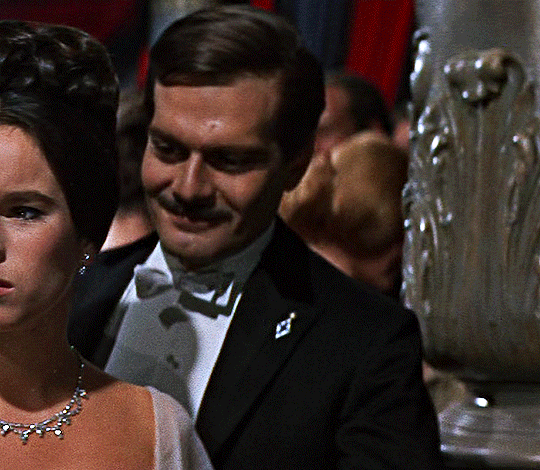
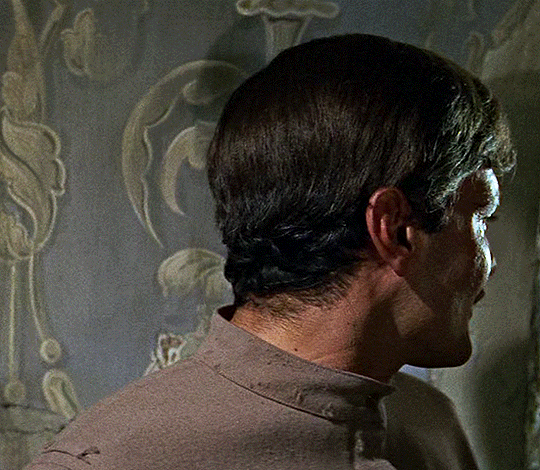
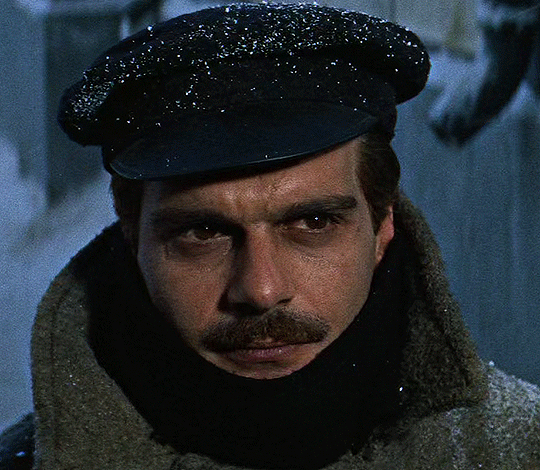
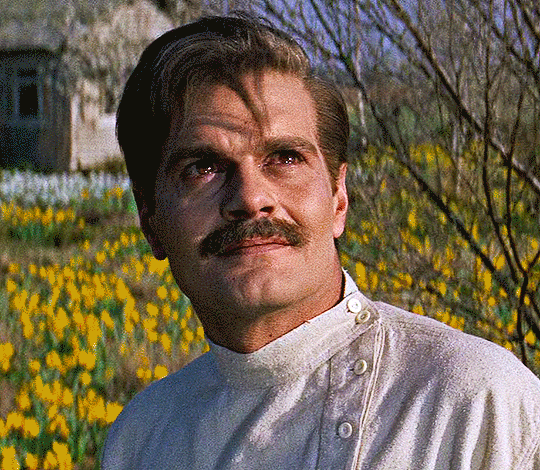
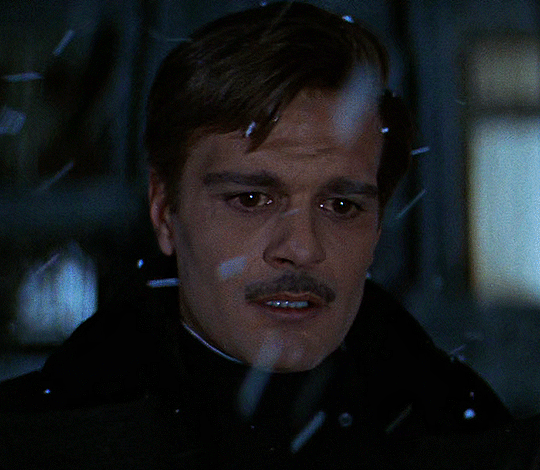
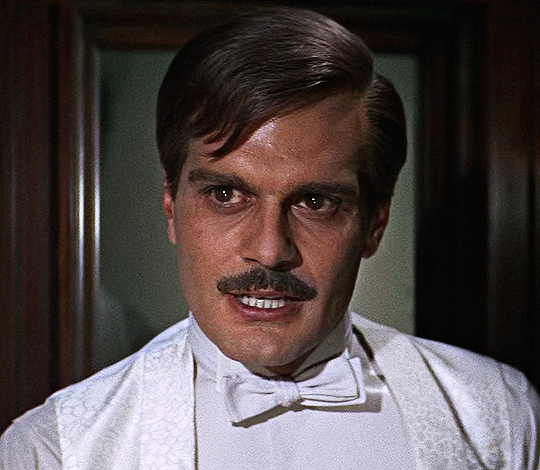
Omar Sharif as Yuri Andreyevich Zhivago
DOCTOR ZHIVAGO (1965) | dir. David Lean
#omar sharif#doctor zhivago#classicfilmsource#classicfilmblr#classicfilmedit#filmgifs#dailyflicks#oldhollywoodedit#mine#white boy... save me white boy...
618 notes
·
View notes
Text






DOCTOR ZHIVAGO (1965), dir. David Lean
31 notes
·
View notes
Photo


I give her to you, Yuri Andreyevich. Wedding present. DOCTOR ZHIVAGO (1965) | dir. David Lean
#doctor zhivago#underbetelgeuse#userclayy#usertom#userairam#jaskierbatey#userdeforest#userfilm#perioddramasource#periodedits#cinemaspast#classicfilmblr#classicfilmcentral#romancegifs#cinemapix#moviegifs#fyeahmovies#tvfilmsource#*#by red#war#romance#drama#1960s
228 notes
·
View notes
Text
#709: 'Doctor Zhivago', dir. David Lean, 1965.
There's not necessarily a lot of in-depth analysis to do with a film like Doctor Zhivago, because David Lean was never really a flashy director who imbued his films with a lot of polyvocality. Lean has six films on this list, and all of them are solid, workmanlike pieces of filmmaking - many of them are melodramas, and many of them are literary adaptations of massive works of fiction. Doctor Zhivago, despite being set fifty years before it was made, is based on Pasternak's 700-page novel of 1957, which also makes it one of the shortest turn-around times between source material and adaptation in Lean's career.
I suspect that, were it not for their runtimes (Doctor Zhivago clocks in at about 200 minutes), these films would be excellent sources for teaching film students how to undertake textual analysis, because this one in particular shows Lean at his most streamlined. He doesn't try to do anything flashy, but he has an innate and honed understanding of how to create meaning with great economy, and he employs this talent rigorously throughout.

While the majority of the reviews of Doctor Zhivago were glowing about the performances of the actors, the film was criticised both for its runtime and for the way in which it reduces the historical context of the novel to mere backdrop. Zhivago (Omah Sharif), a doctor-poet during the October Revolution of 1917 and the ensuing civil wars, is in a happy relationship with his wife, Tonya (Geraldine Chaplin), but his path keeps crossing that of Lara (Julie Christie). The intense emotional bond between them, enhanced by Zhivago's increasing history with Lara (he is tangentially involved with, or present for, most of the turning points in Lara's life), makes their coupling inevitable, and also means that at various points Zhivago must betray his love for Tonya or for Lara, before eventually abandoning them both to protect his ideals. Contemporary critics noted that the true tragedy of the novel is that Zhivago agrees with the revolutionary politics but can't stomach the means by which those ends are attained. For Lean, it seems, the tragedy of the story is that the revolution puts Zhivago in a position where he must betray his love or his values - he cannot have both - and his attempts to have both are the moments where he is in the greatest peril. Lean's films are always about the human emotions at the heart of the stories, and so it's perhaps not surprising that the politics in Doctor Zhivago are somewhat empty of impact, even though they're shown in a stunning way.
Fittingly for a melodrama, at no point in this film are the human emotions higher than when a character must depart, seemingly forever. Lara is the principal 'leaving' character: she receives the same filmic treatment twice, once when her time as a nurse attending with Zhivago is over, immediately after Zhivago has first expressed his love for her, and once when Lara must flee with her daughter under the protection of her former abuser, Komarovsky (Rod Steiger). Both times, Zhivago is framed in close-up watching her leave, the camera lingering on Sharif's tear-filled eyes as the carriage Lara is in grows steadily more distant.
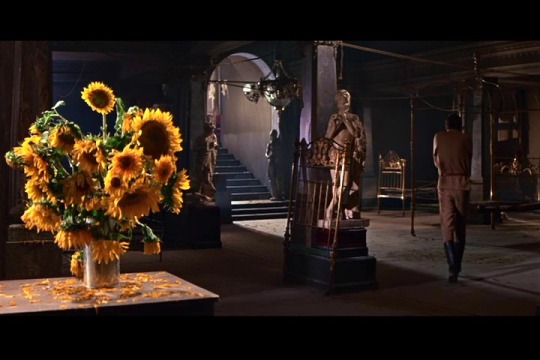
I've written before on the topic of 'bullshit colour theory', and this film is an excellent example of how meaning can be created through repetition alone, rather than through any inherent meaning in a particular symbol. Periods of happiness with Lara are frequently accompanied by yellow flowers - the sunflowers in the field hospital; daffodils in the fields of Varykino; even a yellow flower in a picture by Katya, Lara's daughter, prominently displayed in Lara's home. In addition, Lara's musical theme occurs on the soundtrack a lot, but in these moments it's played on the balalaika, an instrument associated with Zhivago. Finally, while sunshine is obviously associated with moments of happiness, Lara's sunshine is that rich golden-orange colour of sunsets and winter suns. In the first of Lara's departures, all three of these symbols occur simultaneously, drenching the film in excessive imagery that becomes the viewer's main memory of Lara - not an unimpressive feat considering we mostly see her in the snowy depths of despair.
As the political situation gets progressively worse, Lean also removes colour from the rest of the film, until the dominant colours are black, white and red. Red, which under bullshit colour theory would represent love, is instead associated with rebellion - but in those moments where Zhivago is actually forced into rebellion that colour is also absent, meaning that Zhivago becomes equally unmoored from both of the structuring principles of his life. (Love and politics are polar opposites in the film: Strelnikov (Tom Courtenay) tells Zhivago "The personal life is dead in Russia. History killed it.")
Interestingly, Lean mostly achieves this effect through lighting: while we don't see much of Zhivago and Tonya's house before the revolution occurs, it's clear that it has not been painted black in the intervening time. Lean has just changed the natural light for artificial light, robbing the dark colours of their nuances. Towards the end of the good times in any one place, we steadily see fewer scenes shot during the day, as well, making the film feel like it's naturally tending towards disaster.
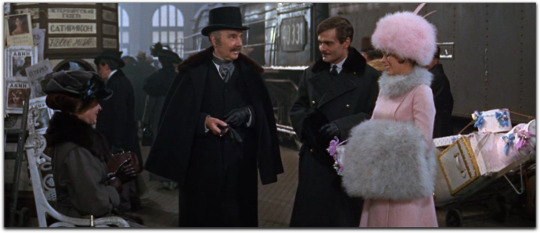
There's a lot of other things I could delve into in Doctor Zhivago, but in hindsight it all seems to merge together into a seamless and uniform sense of confident ability. David Lean knows how to make a film that does exactly what he wants it to do. He's made the filmic relationship between Zhivago and Lara so intense that everything else pales a little when neither of them are on the screen. Is this a bit troublesome when the novel is set in a period of crucial political history? Maybe. Is it troublesome when there's a framing device you're meant to care about as much as the central plot? Maybe. But I would be genuinely surprised if Lean didn't look at those elements and say to himself, 'Right, but where's the story?'
20 notes
·
View notes